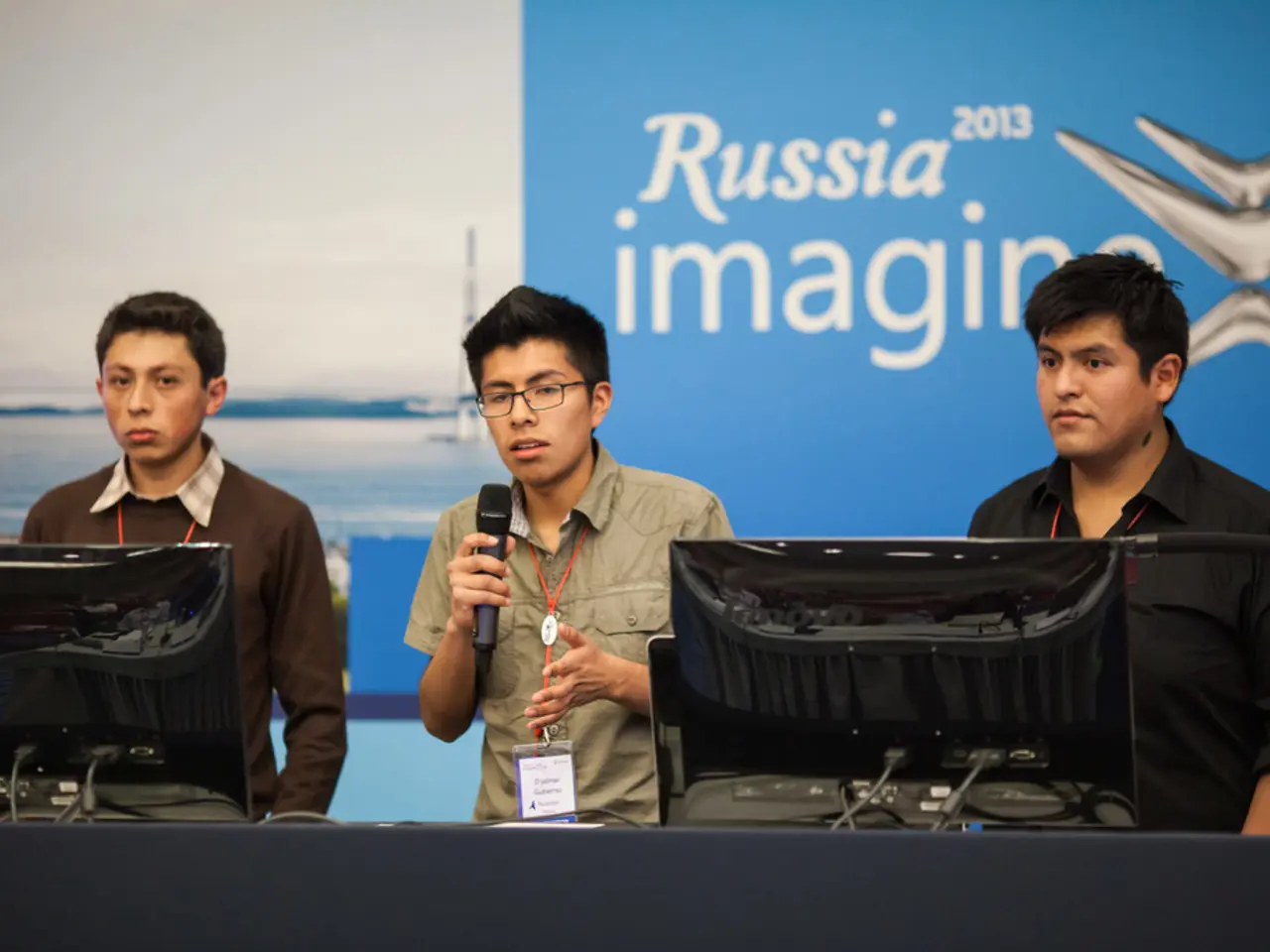Battle for Control in Ukraine's Digital Battlefield
In the realm of modern warfare, the significance of coordinating operations with activities in the information environment has been evident, as demonstrated by the Israel Defense Forces during the Second Lebanon War in 2006 and Ukraine's efforts in the current conflict.
Ukraine's strategic communications have been shaped by a complex mix of historical, geopolitical, and strategic factors derived from its experiences with the Soviet Union, Russia, Israel, and NATO.
The Soviet Union left an enduring legacy on Ukraine's media structures and practices, with remnants of centralized control still visible in the current crisis. Russia, on the other hand, has exerted an adversarial influence, spreading disinformation and propaganda to justify its actions in Ukraine, including labeling Ukraine as a neo-Nazi state.
Israel's effective use of strategic communications in conflict scenarios, focusing on narrative control and managing international perceptions, offers valuable lessons for Ukraine. The country has learned to frame its messages to appeal to international audiences, leveraging technology and media to amplify its cause, as seen in Ukraine's use of social media and global outreach during the conflict.
NATO's influence on Ukraine's strategic communications is more collaborative and supportive, with member states providing training and assistance to modernise Ukraine's communication and information operations. Ukraine's participation in NATO events and its alignment with NATO's strategic goals have also shaped its messaging to align with Western values and build international solidarity.
Ukraine has successfully engaged in the "information war," using social media and storytelling to its advantage. This has been crucial in shaping global perceptions and gaining international support. The country's experience countering Russian propaganda has honed its ability to detect and refute false narratives.
Emulating Israel's agility in crisis communications, Ukraine has shown adaptability in its messaging, using various platforms to reach different audiences effectively. Building on NATO's support, Ukraine has leveraged international partnerships to enhance its communication strategies, aligning its narrative with broader Western values and objectives.
Ukraine's use of military deception, such as the Kherson disinformation campaign, shows an understanding of the psychological aspect of warfare, similar to strategies employed by Israel and other advanced military forces. The country has also granted ordinary soldiers the ability to send out a continuous stream of messages on social media about their daily activities on the frontline, making some of them celebrities on platforms like TikTok and YouTube.
Ukraine's operations in the information environment reflect a concept that is based on international alignment with NATO and strong internal Ukrainian networks that developed in the years leading up to the invasion. The Ukrainian military intelligence service, HUR, uses intercepted phone calls of Russian soldiers to family members and releases excerpts on social media, often highlighting discontent, disappointment, or confessions of (war) crimes.
In conclusion, Ukraine's strategic communications are a testament to the country's resilience and adaptability in the face of conflict. Its evolving communication strategies focus on narrative control, international outreach, and adaptability, drawing from lessons learned from various global entities and historical precedents.
- The importance of intelligent communication strategies and Technology has become apparent in Ukraine's efforts to counter Russian propaganda and Russian disinformation, drawing lessons from Israel's effective use in conflict scenarios.
- Ukraine's strategic communications involve Cybersecurity measures in their framework, as they have learned to detect and refute false narratives, especially those originating from adversarial influences like Russia.
- The military aspect of Ukraine's strategic communications is noteworthy, as they have employed tactics similar to advanced military forces, such as using deception and harnessing the power of social media in warfare.
- Additionally, Ukraine's engagement in the information warfare has been instrumental in shaping global perceptions, gaining international support, and building internal Ukrainian networks that have helped in conducting operations in the information environment.
- NATO's influence on Ukraine's strategic communications is supportive, offering training, assistance, and alignment with Western values to modernize communication and information operations and enhance overall national security.
- Ukraine's evolving communication strategies demonstrate a focus on narrative control, international outreach, and adaptability, drawing on lessons learned from global entities and historical precedents to ensure the success of their defense and security efforts.




